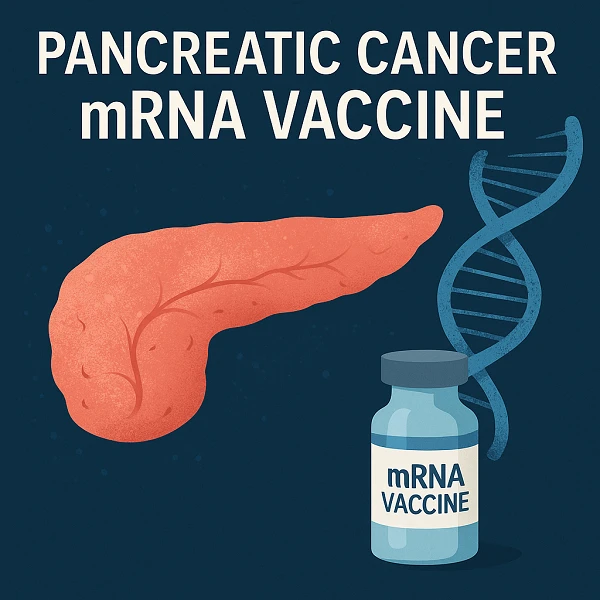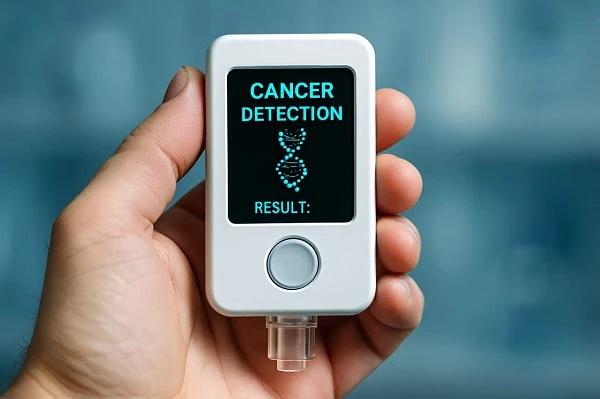Last Updated: July 2, 2025
Pancreatic Cancer mRNA Vaccine: A Ray of Hope Amidst a Deadly Disease

Pancreatic cancer is one of the deadliest forms of cancer known to modern medicine. With a five-year survival rate lingering in the single digits for decades, it has long been a medical enigma that even today’s most advanced treatments struggle to defeat. However, recent breakthroughs in medical science—especially the development of mRNA vaccines—have kindled new hope. Could this be the turning point we’ve been waiting for?
Understanding Pancreatic Cancer: The Silent Killer
Pancreatic cancer occurs when malignant cells form in the tissues of the pancreas, an organ essential for digestion and blood sugar regulation. Its location deep in the abdomen makes early detection incredibly difficult, and by the time symptoms appear, the cancer is often in an advanced, inoperable stage.
It’s commonly referred to as the “silent killer” because of its subtle onset and rapid progression. Pain, jaundice, and weight loss are often the first signs—but they usually appear when the disease has already spread.
Grim Statistics
- Globally, over 495,000 new cases are diagnosed each year.
- It ranks as the 7th leading cause of cancer-related deaths worldwide.
- In the United States, it’s the third deadliest cancer—despite being relatively rare compared to lung or breast cancer.
The Steve Jobs Connection: A Personal Tragedy in a Global Battle
Perhaps one of the most high-profile pancreatic cancer cases was that of Steve Jobs, co-founder of Apple Inc. Jobs was diagnosed with a rare form of pancreatic cancer called a pancreatic neuroendocrine tumor (PNET) in 2003.
Unlike the more common exocrine tumors, PNETs are less aggressive but still dangerous. Jobs chose alternative treatments for several months before opting for surgery. Unfortunately, the cancer recurred, and despite receiving a liver transplant in 2009, he ultimately succumbed to the disease in 2011 at age 56.
His death was a stark reminder that even the most innovative minds and deep financial resources cannot always triumph over cancer. Jobs’ case shone a global spotlight on the urgent need for better diagnostics and treatments.
The Dawn of a New Era: mRNA Vaccine Technology
Until recently, the idea of using vaccines to treat cancer was more science fiction than science fact. That changed with the success of mRNA vaccines in fighting COVID-19. The same technology that helped millions avoid severe coronavirus symptoms is now being repurposed to tackle diseases like pancreatic cancer.
What is an mRNA Vaccine?
Messenger RNA (mRNA) vaccines work by delivering genetic instructions to the body’s cells. These instructions tell cells to produce a protein that triggers an immune response. In the case of cancer, the vaccine trains the immune system to recognize and attack tumor-specific antigens.
Breakthroughs in Pancreatic Cancer mRNA Vaccines
One of the most promising studies came from a collaboration between BioNTech (the company behind the Pfizer COVID-19 vaccine) and researchers at Memorial Sloan Kettering Cancer Center. In their Phase I clinical trial, the mRNA vaccine demonstrated the ability to provoke a powerful T-cell response in about half of the pancreatic cancer patients involved.
Though early-stage, this is a monumental achievement. The trial involved a small group of patients who had undergone surgery to remove tumors. Those who received the mRNA vaccine showed better immune activation and reduced recurrence rates.
Why This Matters
- Pancreatic cancer has historically been resistant to immunotherapy.
- This mRNA approach personalizes treatment by targeting each patient’s unique tumor mutations.
- It opens the door for similar vaccines for other hard-to-treat cancers like glioblastoma and ovarian cancer.
The Science Behind the Shot
The vaccine used in the BioNTech trial is customized for each patient. After surgery, the tumor is genetically sequenced to identify neoantigens—unique protein markers. These are then encoded into an mRNA sequence, which is injected into the patient to prompt the immune system to attack any remaining cancer cells.
This approach is essentially a "cancer fingerprint-based vaccine", turning the immune system into a precision weapon.
Challenges Ahead
While promising, mRNA cancer vaccines are still in the early stages. Some challenges include:
- High development and customization costs.
- The need for ultra-fast sequencing and vaccine preparation post-surgery.
- Limited efficacy in late-stage cancers where the immune system is compromised.
Moreover, not every patient responds the same way. While 50% of patients in the initial trial responded positively, others did not. Further research is needed to understand the variables at play.
What the Future Holds
1. Personalized Medicine Becomes Mainstream
With AI, faster genomic sequencing, and real-time diagnostics, mRNA cancer vaccines could become more accessible and cost-effective. Future generations might receive personalized vaccines within days of diagnosis.
2. Combination Therapies
Doctors are exploring combinations of mRNA vaccines with chemotherapy, radiation, and checkpoint inhibitors to create a multifaceted attack on cancer.
3. Early Detection + Vaccination
Imagine a world where pancreatic cancer is detected via blood biomarkers years before symptoms appear. An mRNA vaccine could be administered as a preventive measure, much like HPV vaccines today.
4. Public Accessibility
As more companies enter the field, production costs will likely decrease. Governments and NGOs will also push for subsidized access in low- and middle-income countries.
Global Efforts and Collaborations
The WHO and organizations like the Bill & Melinda Gates Foundation are closely watching the mRNA revolution. BioNTech has announced plans to open mRNA manufacturing centers in Africa, which could be used not only for infectious diseases but for cancer treatments too.
The U.S. National Cancer Institute has also invested heavily in studying mRNA's potential against various tumors, including pancreatic cancer.
Voices of Hope
Dr. Vinod Balachandran, who led the BioNTech-MSK trial, expressed optimism: “This is the first time we've seen a coordinated immune response in pancreatic cancer patients. We’re on the edge of a paradigm shift.”
Former patients have shared stories of extending life beyond all expectations, maintaining quality of life, and even entering remission after experimental vaccines.
Final Thoughts
Pancreatic cancer may be one of the toughest adversaries in the world of oncology, but the tides are beginning to turn. What once felt like a hopeless diagnosis is now at the heart of a medical renaissance driven by mRNA science.
Steve Jobs once said, “Innovation distinguishes between a leader and a follower.” Though he didn't live to see this new frontier, his story continues to inspire the very innovation that may save millions of lives in the future.
With continued investment, clinical trials, and global cooperation, the pancreatic cancer mRNA vaccine could become the greatest cancer breakthrough of our generation—a symbol of science at its most powerful and humane.



